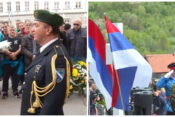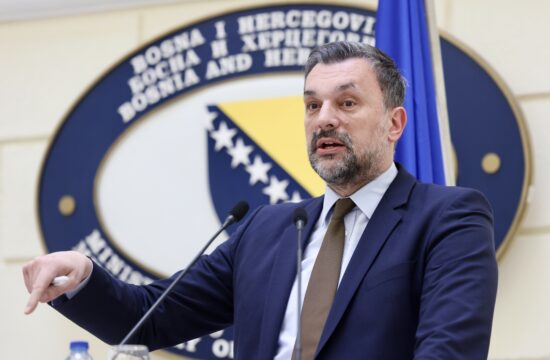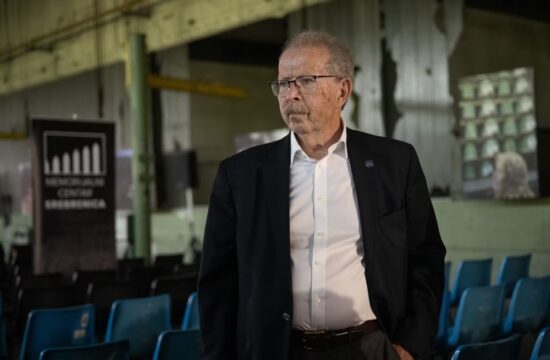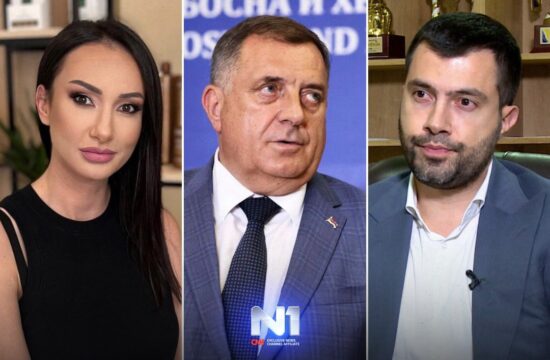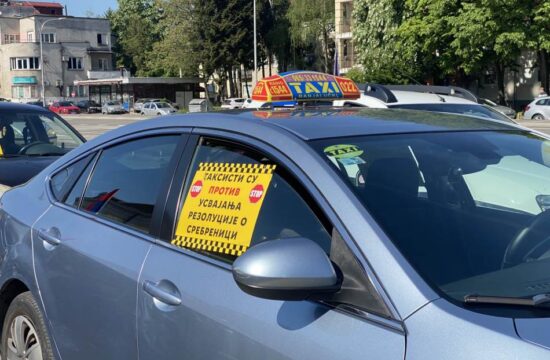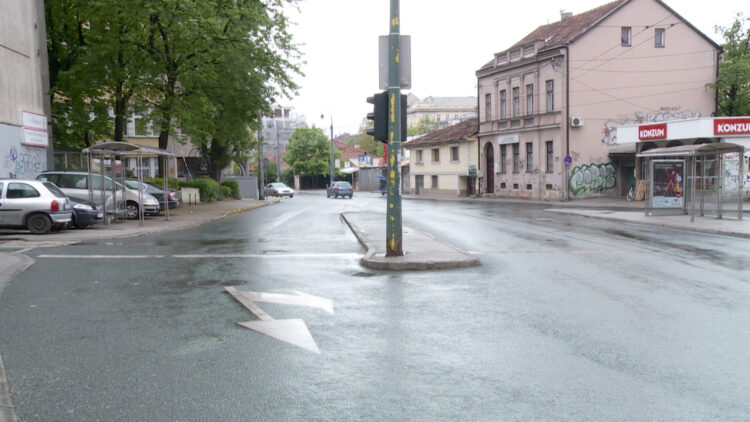
Officials from Bosnia’s Serb-majority region laid wreaths next to a cross in the Eastern Sarajevo, marking the 28th anniversary of the death of Yugoslav National Army (JNA) soldiers during a conflict in downtown Sarajevo.
Bosniaks and Serbs have conflicting narratives about the clash on May 3, 1992, when Bosnian forces attacked a JNA convoy which was leaving the city per a withdrawal agreement but took Bosnia’s president with them as a hostage.
The JNA captured the first President of the Republic of Bosnia and Herzegovina, Alija Izetbegovic, at the Sarajevo International Airport the previous day as he was returning from negotiations in Lisbon.
Bosnian forces stopped the convoy in Dobrovoljacka street, in downtown Sarajevo, to free their president.
As in previous years, families of the victims gathered next to a cross-shaped monument in Miljevici, arguing they do not commemorate their loved ones at the place where the attack happened because Sarajevo's authorities are not allowing them to put up a monument there.
The issue is that there is no agreement on what the plaque would say.
Bosnian Serb representatives claim that 42 innocent young men, members of the former JNA, were killed while 70 were injured and 200 detained.
Bosnian prosecutors say seven were killed and 14 detained.
“Today as well, under extraordinary circumstances, we have gathered to honour the JNA soldiers, killed on May 2 and 3, 1992 in Sarajevo,” said Dusko Milunovic, the Minister of Labour, War Veterans and Disabled Persons’ Protection Republika Srpska entity.
“They were killed by Muslim para-military forces that shot at the convoy which was according to an agreement between Alija Izetbegovic and the commander of the Second Army District, General Kukanjac, supposed to leave Sarajevo peacefully,” he said.
It has also never been established who shot first during the attack and the battle remains a symbol of defence for one side and a symbol of suffering for the other.
Bosnian Serb member of the country’s presidency, Milorad Dodik, said the “crime will forever remain an open wound.”
“Nothing can compensate for the loss the families of the victims suffered and that is a cruel reality they have to live with, while we have to support them,” Dodik said.

